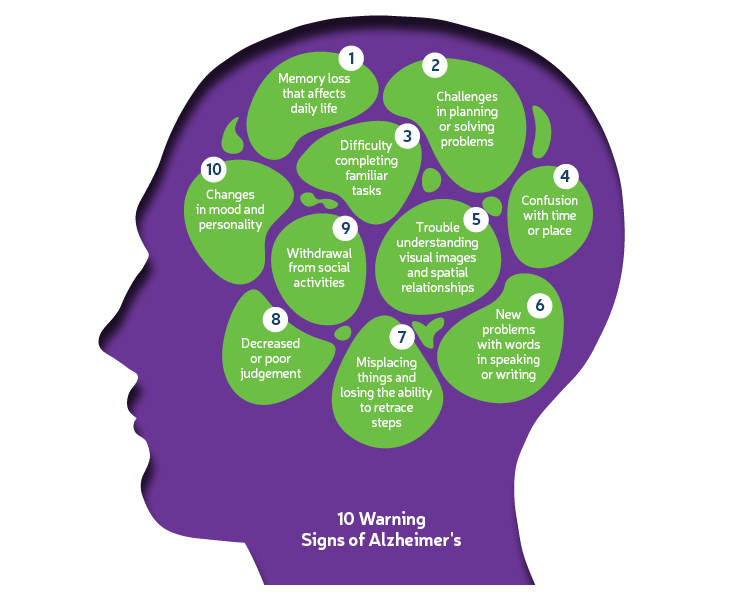ONE OF THE GREATEST HEALTH CONCERNS WE OLDER NEW ZEALANDERS
(INCLUDING MYSELF) HAVE IS THE FEAR OF GETTING ALZHEIMER'S.
My dad developed Alzheimer’s in his early 90s. Not to the extent that he didn’t recognise me, but still serious and requiring 24-hour care. My mum in her 90s fortunately remained clear minded, but would often repeat things she’d already told us.
My dad’s younger brother, developed full blown Alzheimer’s, starting about age 75, the age I’m at now. He needed full time care and eventually died of the disease. I remember visiting him with dad in the rest home at Napier and seeing him staring blankly. He didn’t recognise any family members during his final 12 years, not even his wife and at age 90 died of the disease. Understandably, I’m keen to avoid dementia of any type and to help my customers also avoid it.
Alzheimer’s – fast becoming our biggest killer
Alzheimer’s is now the biggest killer in the UK. I didn’t believe it until I checked and found it true.
Here in NZ the incidence of Alzheimer’s is doubling every 20 years, and there is no promising drug on the horizon.
Alzheimer’s can now be reversed
The outlook would be bleak, were not for the successes of a Dr Dale Bredesen. This researcher on ageing has now found a way to consistently reverse Alzheimer’s disease, provided it hasn’t progressed too far and has numerous recovered patients to prove it. He now spends his time training other doctors.
He has authored a very interesting book ‘The End of Alzheimer’s’ which reveals his method, or to use his medical term – his protocol.
Multiple causes need to be treated
He likens Alzheimer's to a roof with many holes. Every hole needs to be plugged to stop the leaks, not just one or two. He insists that poor nutrition, poor sleep, insufficient exercise and stress reduction all need to be addressed.
Dr Bredesen likens Alzheimer’s to Type 2 diabetes and calls Alzheimer’s ‘Type 3 diabetes’. He maintains that plaque build-up in the brains of those with the disease, is not the cause of Alzheimer’s, but the result of the brain’s built-in protective mechanisms doing their best to protect the brain from excitotoxins and toxic metals in our food. These toxins are expelled from our body provided we have enough omega 3, minerals, vitamin D and sleep well.
I’ll be outlining his treatment in a future book I’m working on, entitled (at this stage) ‘Avoiding and Reversing 40 Health Disorders.’

Good nutrition vitally important
Dr Bredesen’s stress on good nutrition makes perfect sense to me. You might remember that some years back I reported on my personal, two-month experiment of not taking any supplements at all, and how I was alarmed after just two weeks, when I found my brain and memory not processing as fast as before. I thought at the time, ‘My mind feels like an old, slow computer”.
I thought this might be due to me not taking my daily DHEA capsule, so after
just one month I started taking DHEA again, and began to return to normal.
The nutrients in CAA -Multi and
CoQ10-Omega3 brought me fully back to normal when I began taking my supplements again after two months.
Toxic brain minerals and memory problems
I’ve found in my research on dementia, that a brain contaminated with mercury, aluminium or iron, creates problems
with verbal recall.
Evidently dentists, who are constantly exposed to mercury fumes have difficulties with verbal recall as they age past 50. My own recall of names has never been good, and seems to be getting worse, so I recently had my remaining four mercury amalgam fillings removed. While I was at the surgery I asked my dentist, who’s in his mid-50s and experienced in amalgam removal, if verbal recall was a problem for him. He replied, “For sure.”
Protecting our brain from toxins
Mercury fumes from amalgam fillings have easy access to our brain and are far more damaging than mercury from fish. Mercury in our food passes through our digestive system and rarely accumulates in the brain.
The minerals magnesium, zinc, selenium, chromium, vitamins D and C, DHEA 7-Keto, folate and omega 3 fats are vital to protect our brain. These, with perhaps the exception of vitamin C are often lacking in our NZ diet and in my opinion should ideally be supplemented.
Choline, which our body makes from protein foods and phosphatidylserine, also found in protein foods, help also. These and carnitine can be important, especially for vegans. NAC (N-acetylcysteine) can detox our brain from mercury, aluminium and lead. All rather complex, but I cover all this more clearly in the new 11th edition update of my ‘Stay Healthy’ book which is in the process of being edited.
Herbs such as lion's mane, ginkgo biloba and ginseng can also help a malnourished brain to function much better.
Sound natural sleep, as always, is absolutely vital. As a writer, if I have a disturbed sleep, it becomes obvious the next day in lack of clear thinking and word recall.
5-HTP to increase serotonin can be useful if natural sleep is a problem.
Our brain need not age
Our brain is the one organ in our body not programmed to age. As long as our brain is nourished properly, especially with the nutrients listed, and exercised with puzzles, games, new learning, etc, it can renew its neurons and cells indefinitely.
Alzheimer’s vs Dementia
Alzheimer’s is a specific disease that affects the brain. It is one of many diseases that leads to dementia.
Dementia is a general term for a decline in ‘cognitive ability’ that includes memory loss and thinking difficulties. Dementia is caused by damage to the cells in the brain.
For more information visit alzheimers.org.nz